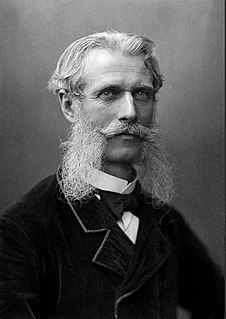A Quote by Theodor Adorno
In so far as the culture industry arouses a feeling of well-being that the world is precisely in that order suggested by the culture industry, the substitute gratification which it prepares for human beings cheats them out of the same happiness which it deceitfully projects.
Related Quotes
We know – it has been measured in many experiments – that children with strong impulse control grow to be better adjusted, more dependable, achieve higher grades in school and college and have more success in their careers than others. Success depends on the ability to delay gratification, which is precisely what a consumerist culture undermines. At every stage, the emphasis is on the instant gratification of instinct. In the words of the pop group Queen, “I want it all and I want it now.” A whole culture is being infantilised.
The culture industry perpetually cheats its consumers of what it perpetually promises. The promissory note which, with its plots and staging, it draws on pleasure is endlessly prolonged; the promise, which is actually all the spectacle consists of, is illusory: all it actually confirms is that the real point will never be reached, that the diner must be satisfied with the menu.
I am extremely honoured by Indian Council For Culture Relations, India's apex body on the promotion of great Indian culture across the world for including cinema and I am deeply honoured for being the first person from the Indian film industry to represent the cause of this industry in the overall cultural promotion globally.
Many teachers of the Sixties generation said "We will steal your children", and they did. A significant part of America has converted to the ideas of the 1960s - hedonism, self-indulgence and consumerism. For half of all Americans today, the Woodstock culture of the Sixties is the culture they grew up with - their traditional culture. For them, Judeo-Christian culture is outside the mainstream now. The counter-culture has become the dominant culture, and the former culture a dissident culture - something that is far out, and 'extreme'.
Historians differ on when the consumer culture came to dominate American culture. Some say it was in the twenties, when advertising became a major industry and the middle class bought radios to hear the ads and cars to get to the stores. ... But there is no question that the consumer culture had begun to crowd out all other cultural possibilities by the years following World War II.
The problem that faces us is the problem of awakening. What we lack is not an ideology or doctrine that will save the world. What we lack is mindfulness of what we are, of what our situation really is. We need to wake up in order to rediscover our human sovereignty. We are riding a horse that is running out of control. The way of salvation is a new culture in which human beings are encouraged to rediscover their deepest nature.
I see The Gap ads as being a great example of how branding has changed. Those Gap campaigns are pop culture. They've been incredibly powerful. They have had the kind of effect on culture that a hit band has. Just look at The Gap's Khaki swing ads, which were music videos. They had this tremendous impact on the industry - suddenly everything started looking like Gap ads and it became difficult to know who was co-opting whom and who was creating culture.
I think the music industry, for instance, is such a huge, multibazillion-dollar industry and it's become very, very savvy. There's a very short grace period in which actual human rebellion or resistance can thrive before it's co-opted by these huge companies. And all of youth culture is packaged and sold back to us at this furious rate these days. I think it's part and parcel to this corporate encroachment on our lives in general.
The paths by which people journey toward happiness lie in part through the world about them and in part through the experience of their souls. On the one hand, there is the happiness which comes from wealth, honor, the enjoyment of life, from health, culture, science, or art; and, on the other hand, there is the happiness which is to be found in a good conscience, in virtue, work, philanthropy, religion, devotion to great ideas and great deeds.
Even personal tastes are learned, in the matrix of a culture or a subculture in which we grow up, by very much the same kind of process by which we learn our common values. Purely personal tastes, indeed, can only survive in a culture which tolerates them, that is, which has a common value that private tastes of certain kinds should be allowed.




































